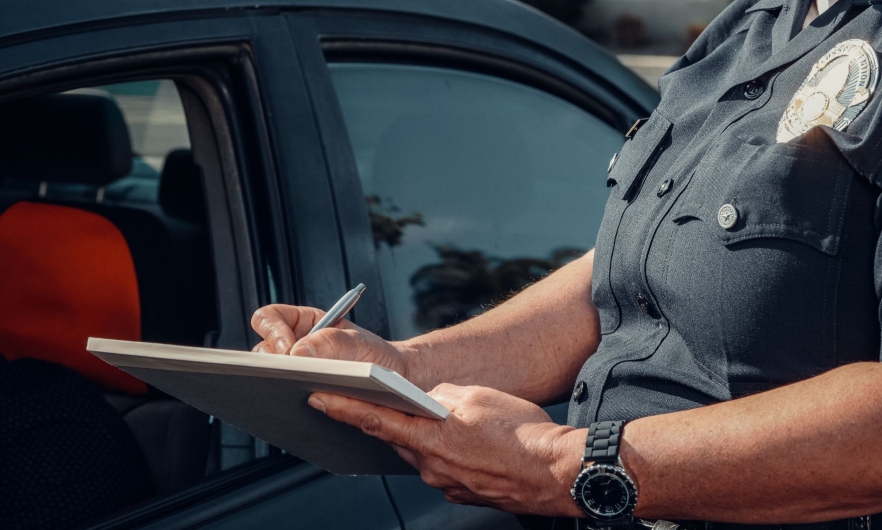State-by-State Analysis Shows Uneven Progress on U.S. Police Accountability Reforms
New report shows limited implementation of most effective accountability measures.

In the wake of George Floyd’s killing in 2020, state legislatures across the country pledged to overhaul policing practices and strengthen oversight. A new study finds that while all but two states and the District of Columbia and Puerto Rico took action from May 2020 – December 2022, the reforms varied widely in scope and significant accountability gaps remain.
A research team led by Hossein Zare, PhD, an associate research professor in the Department of Health Policy and Management at the Johns Hopkins Bloomberg School of Public Health surveyed all 50 states, along with Washington, D.C., and Puerto Rico, and found that between May 2020 and December 2022, more than two-thirds of the states addressed police accountability in some form by proposing or enacting a total of 226 bills. The team also surveyed 55 national experts in enforcement oversight, policy advocacy, and community engagement to identify what helps—and what hinders—laws aimed at preventing police misconduct.
The paper was published online on August 5 in the journal Social Sciences.
Policy Changes
The findings show that 48 states enacted at least one new police accountability policy during the study period, with California, New Jersey, Oklahoma, and Colorado passing multiple measures. Training and technology requirements were the most common, enacted in 26 and 19 states, respectively. New training policies focused on topics like crisis intervention, bias awareness, and specialized instruction for working with vulnerable populations. Technology requirements largely focused on the use of body-worn and dash cameras, although few have paired these measures with penalties for failing to use the equipment properly. One state, New Mexico, has laws that require disciplinary action for failing to activate cameras or for tampering with footage.
Seventeen states strengthened officer certification standards, adding provisions to suspend or revoke licenses when necessary. Many experts consider standards for certifying and decertifying officers to be key to holding law enforcement accountable. “It’s really not enough to say you’ve passed an accountability law,” says Zare. “The law must include meaningful consequences in order to rebuild trust between police and the communities they serve and prevent future harm.” On a related note, the study authors note the lack of a centralized national database monitoring officer misconduct as an underlying challenge, as officers who have been disciplined may move to new jurisdictions undetected.
Fourteen states took steps to boost community involvement—either by increasing representation on review boards or by working to align police demographics more closely with the populations they serve, and twelve states revised their use-of-force policies, adding new reporting and review procedures. Meanwhile, 10 states targeted structural inequities directly, passing laws that mandate discrimination and implicit bias training, or address broader disparities in policing practices.
Expert Opinions
The companion survey of 55 national experts revealed that insufficient local government assistance was the most frequently mentioned obstacle to passing police accountability laws, cited by nearly 75 percent of respondents. For the survey, the researchers asked 55 experts a set of questions on the barriers and facilitators to enacting law enforcement accountability policies from June 23 – September 1, 2022. Other challenges identified by the respondents included the lack of consideration for low-income and minority groups in the provision of policing services, along with apprehension that reforms could jeopardize public safety or hinder the ability to enlist personnel.
On the other hand, community support was thought to be the most powerful driver of reform, named by more than 80 percent of experts. Respondents also emphasized the importance of a cultural shift within law enforcement, encouraging officers to view themselves as “guardians” rather than “warriors,” and the development of more collaboration between police and social services.
Respondents emphasized the necessity of training policies in all states, particularly in those where disproportionate policing has historically occurred and where Black and Hispanic populations are larger. Respondents listed a lack of racial and ethnic diversity among officers, ineffective disciplinary procedures, and insufficient de-escalation training as the top three issues.
They also noted that some evidence-based models remain hopeful. Co-responder programs, which pair officers with social workers or mental health professionals, were cited as beneficial. Additionally, experts emphasized the value of civilian advisory boards and regular community engagement in preserving trust.
Progress Ahead
Despite these promising examples, the study highlights the absence of enforcement mechanisms, dedicated funding, or oversight structures as some of the most common barriers to reforms. Resource disparity between various law enforcement agencies can be a challenge for underfunded or smaller departments in meeting compliance with new requirements.
According to Zare, the data show that to improve the public-police relationship, a “new social contract” founded on openness, collaboration, and justice is needed. “Accountability is about creating systems that prevent harm, promote respect for one another, and make every community feel safer, not just about punishing wrongdoing after the fact.”
The authors say further investigation into the effectiveness of these reforms, evaluating what works best in which contexts, is needed. The authors also recommend that public health dimensions be incorporated into law enforcement policy, especially given the health impacts of police violence on the communities they serve.
The report’s findings confirm that, although progress has been made since 2020, there is still more to be done. As Zare puts it, “the challenge is to shift from symbolic changes to enduring, systemic changes where accountability is the rule, not the exception.”
The paper, “State-by-State Review: The Spread of Law Enforcement Accountability Policies,” was co-authored by Danielle R. Gilmore, Khushbu Balsara, Celina Renee Pargas, Rebecca Valek, Andrea N. Ponce, Niloufar Masoudi, Michelle Spencer, MS, Tatiana Y. Warren, and Cassandra Crifasi, PhD, MPH. It was funded by the Bloomberg American Health Initiative and the Robert Wood Johnson Foundation.





